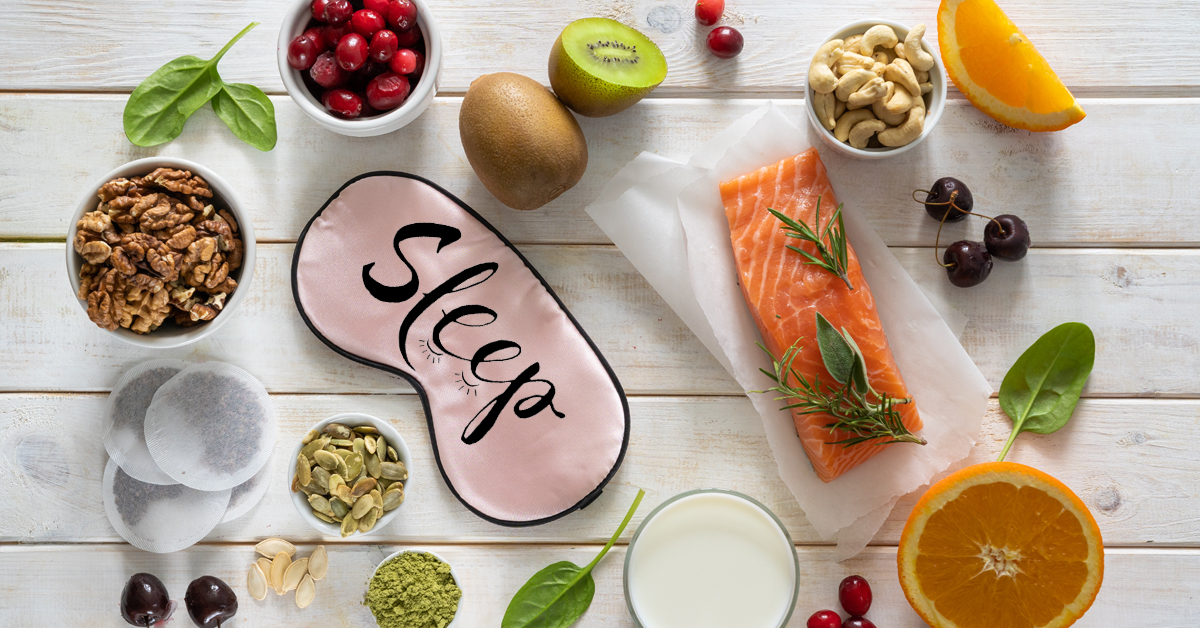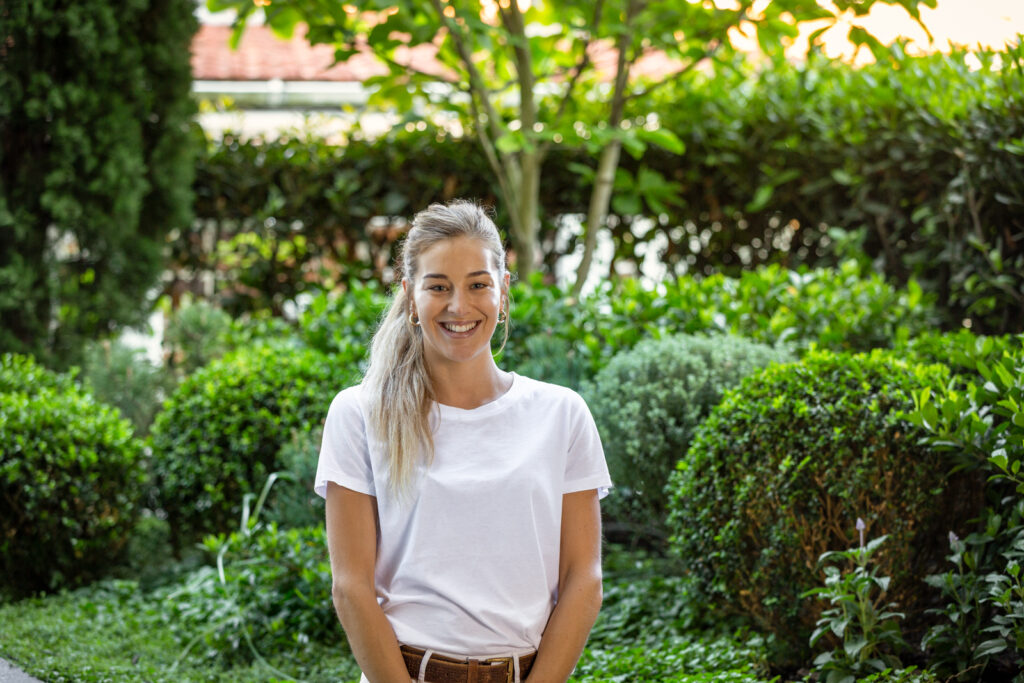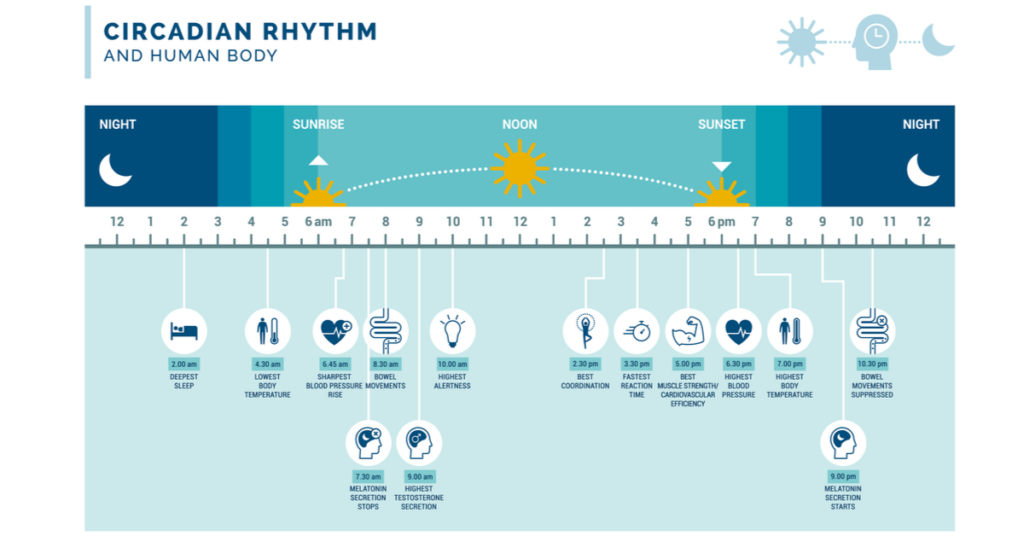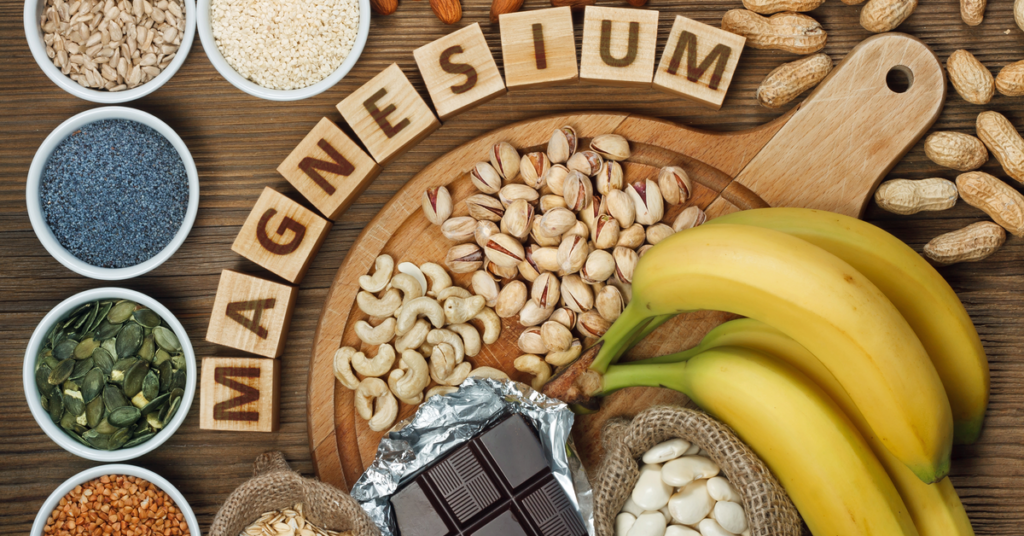5 Food Habits To Help You Sleep

There’s a magic intersection between eating right and sleeping well. If you eat the right foods, you have the energy to exercise and it improves the quality of your sleep. Wake up feeling fresh and you’re likely to be able to exercise and eat better & so the cycle happily continues.
Sounds easy. It isn’t.
However, there are a few tips to follow with your bedtime habits and what foods you eat that could go some ways to increasing the Zzzs or giving you a better quality of sleep.
We had a chat with My Food Bag’s Nutrition Manager & Registered Nutritionist Emma Wylie about key food habits you might consider to help you sleep well.

Melatonin
Sometimes referred to as the Dracula hormone because it comes out at night, melatonin is the hormone responsible for making you sleepy. Your melatonin production is linked to your body’s natural clock, or its sleep/wake cycle, called our circadian rhythm, says Emma.
Levels of light affect our melatonin production, with darkness promoting it and lightness hindering it. Your melatonin levels typically peaking at around 2-4am, which is why night shift workers sometimes struggle to get a good sleep during the day.“ Although there’s no silver bullet, getting more melatonin in your diet later in the day might just improve your sleep” according to Emma.
So, while you can take a synthetic melatonin supplement, there are foods that naturally contain melatonin. Eggs, oily fish like salmon and sardines, and nuts such as almonds or pistachios are top food sources of melatonin (along with being rich in healthy fats, vitamins, minerals, and protein – win!). If you do suffer from poor sleep, tart cherries are another food rich in melatonin (although not easily found in the supermarket!), there are natural supplements you can take, she says.

Meal size & time
Famous novelist Virginia Woolf once wrote: “One cannot think well, love well, sleep well if one has not dined well.” However, what you eat and when you eat it may play a role in how you sleep, says Emma. The best time to eat is approximately 2-3 hours before bedtime as this allows time for our stomach to digest the food.
“If you think your dinner might be getting in the way of your sleep, it might be worth thinking about when you have your main meals in your day”, she says. It runs with the statement: Eat breakfast like a king, lunch like a prince, and dinner like a pauper.

What to avoid before bedtime
Like a strong cup of coffee – there are some things that aren’t the best idea to eat or drink close to bedtime. Tyramine is an amino acid that our body produces and is also found in some foods. Tyramine helps regulate blood pressure however, high levels of tyramine can act as a brain stimulant just like caffeine, which doesn’t help with good quality sleep, says Emma.
Look to avoid foods that contain tyramine close to bedtime, such as cured meats, aged cheeses , pickled or fermented foods, yeast spreads like marmite, overripe bananas, avocados and alcoholic beverages such as red wine, beer and some liqueurs.

Magnesium
Magnesium is an essential mineral and has long been considered as a helpful supplement to be taken before bed. Research on how it can improve your sleep isn’t exactly robust, but it has been shown in some studies, especially in older adults, to assist with sleep.
Emma says: Our bodies naturally have small levels of magnesium. However, you can add a dietary supplement to safely boost these levels. It’s thought that by increasing levels of magnesium, you can regulate the neurotransmitter called GABA which essentially will help you and your muscles relax, de-stress and ultimately fall asleep, she says.
You could think of magnesium as a tool to help power down your brain for the night to get a more restorative sleep.

Tryptophan
This sounds very Erin Brockovich, but actually Tryptophan is an essential amino acid. There are 20 amino acids, all which are the building blocks of protein. Eleven of the amino acids our bodies produce themselves, however, the remaining nine we must get from our diet, says Emma.
These nine are called essential amino acids. “Essential that they’re in our diets,” she says. Tryptophan helps with mood stabilising and sleep patterns from its role in the production of serotonin (another hormone involved in regulating our circadian rhythm or internal body clock). This amino acid is typically found in both plant and animal-based proteins, such as milk, canned tuna, turkey and chicken, oats, cheese, nuts and seeds and whole wheat bread.
The good news is that chocolate also contains tryptophan however, darker chocolate does have a small amount of caffeine too, so might counteract any positive effects on your sleep quality if eaten just before bedtime!






